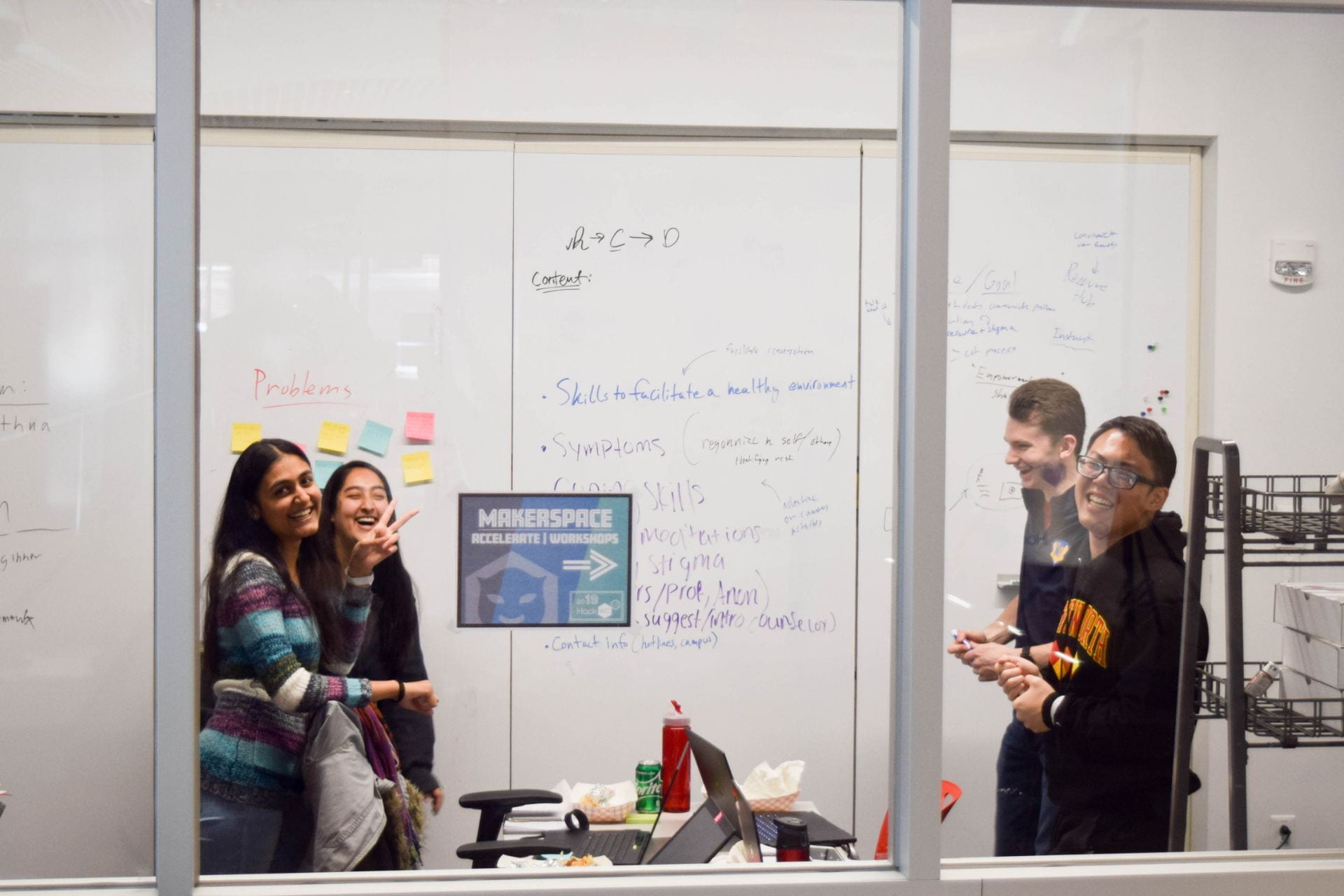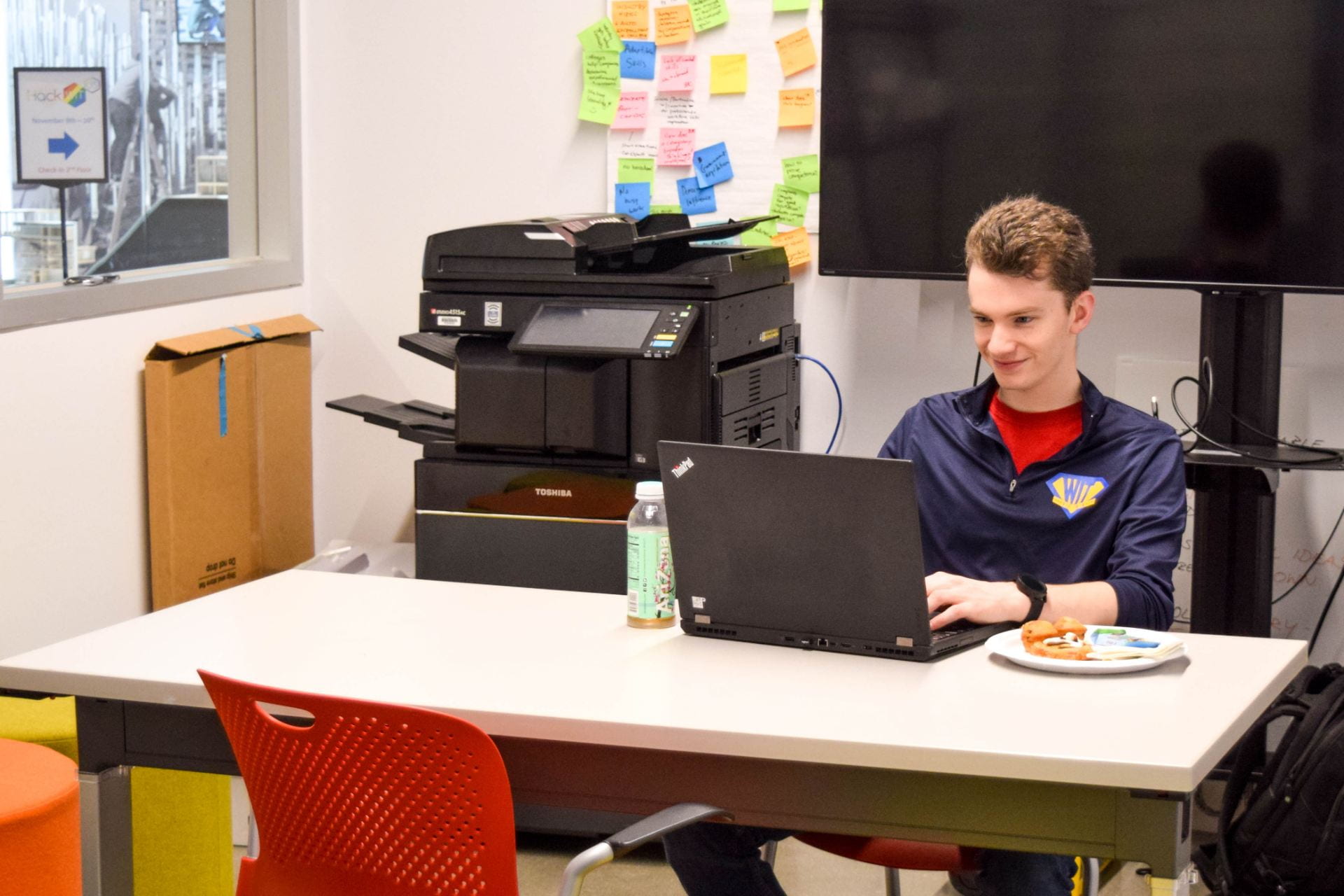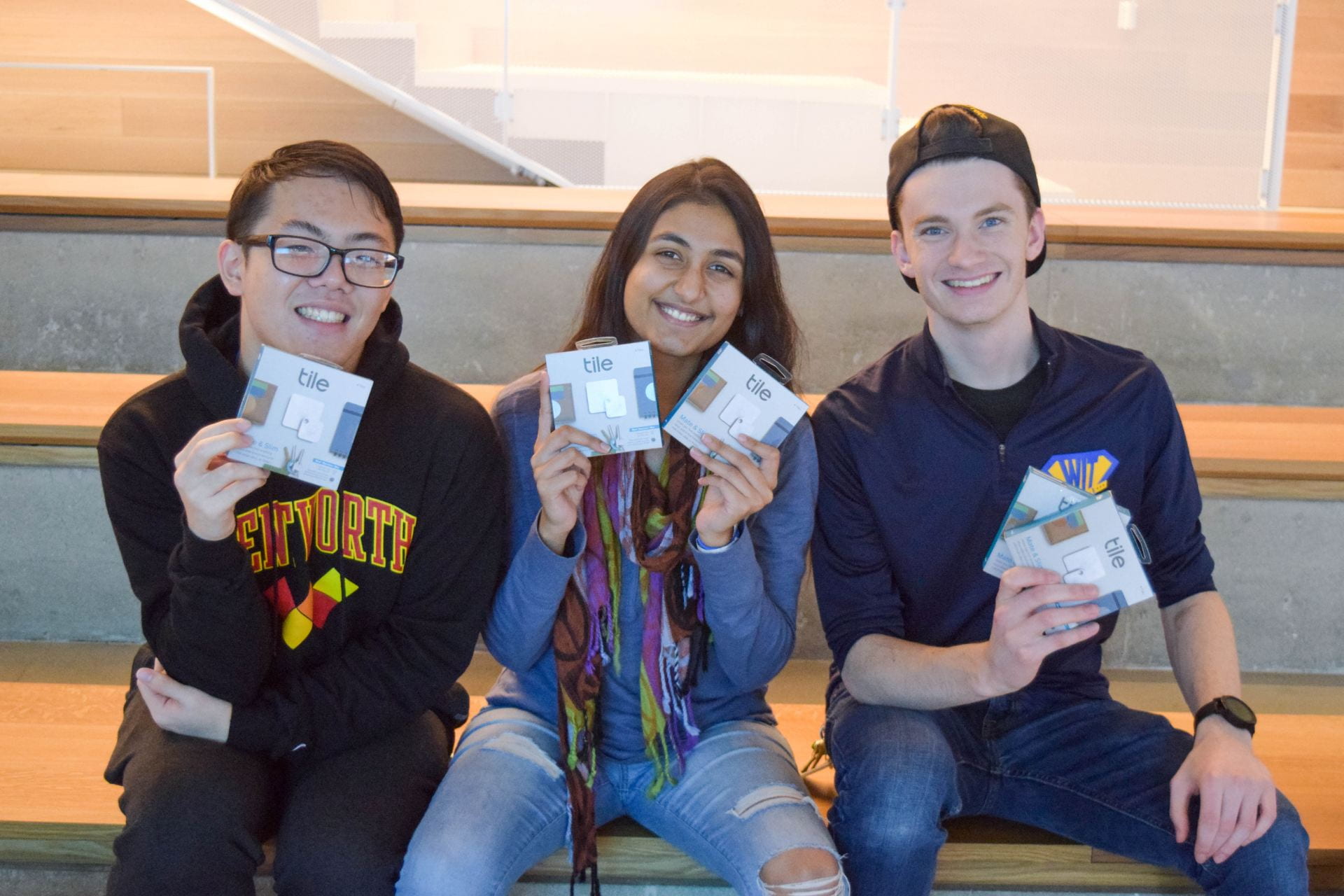By: Alec Hewitt
Alec Hewitt is a senior in the undergraduate Electromechanical Engineering program. He recently completed his first mandatory co-op with the Woods Hole Oceanographic Institution (WHOI) and shared his experience with us:
- Describe your co-op role.
I was an Engineering Assistant III at Woods Hole Oceanographic Institution, where I led an electrical design project and helped out with an overhaul of the autonomous underwater vehicle, Sentry, to improve its sonar and control capabilities at depth.
- Why were you interested in completing your co-op at WHOI?
I am interested in engineering because of the impact on science and discovery and I think WHOI is such a great example of that. WHOI seemed like the perfect place to accomplish hands-on science and engineering while being involved in the cutting edge of deep submergence research.
- What is a typical day like at your co-op?
Days at WHOI are never typical, but most mornings consist of a short meeting with the small Sentry AUV team (around nine people) where we discuss the goals of the day and give vehicle updates. I typically spend the morning doing electrical and software design, then working on the vehicle the rest of the day. Vehicle work is never typical – we spent part of the summer installing a new multibeam sonar transducer, and another part bringing the vehicle in and out of the ocean for testing.
- While on co-op, what project(s) have you been a part of, or something that you are working on, that has inspired you?
Sentry AUV is used mostly for oceanographic research, particularly for mapping the seafloor, taking measurements, and locating lost wreckages. This work is heavily dependent upon the vehicle’s ability to travel along the sea floor at 6000 meters for up to 24 hours at a time. During the summer, I designed a circuit board which would analyze battery usage and help elongate the lifetime of each mission. This was inspiring because it, along with the other great work by the team allowed WHOI scientists to collect valuable data for understanding unknown ecosystems and terrain. Seeing engineers and scientists with drastically different skill sets work together to gather data was very inspiring.
- What was the biggest lesson you learned through your co-op?
I’ve learned that co-workers will value you equally when you give yourself enough confidence… while having some humility. Ask questions, but never underestimate your own answers to problems. Being a co-op is tough because you are being challenged while surrounded by experienced engineers and scientists. The most valuable thing you can do is show confidence in your work, but listen carefully when you are wrong.
- What advice do you have for students interested in working at WHOI?
At WHOI, the engineers and computer scientists are also the vehicle mechanics. No matter your major, make sure you know the imperial system, how to fasten a ratchet strap, and learn some knots! Above all, always continue learning things that you won’t find in the classroom.
Thank you for sharing your experience with us, Alec! Be on the lookout for our next co-op feature. If you would like to share your co-op experience with us (positive or not-as-expected), or have any questions about the co-op process, please email us at coopsandcareers@wit.edu.
As always, to make an appointment with your CO-OP + CAREER Advisor call the front desk at 617.989.4101 or stop by the CO-OPS + CAREERS Office.
Fall 2019 Drop-In Hours: Monday, Tuesday and Wednesday 1:30pm – 4:00pm while classes are in session.





